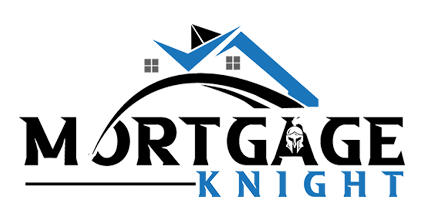Buy to Let vs Residential Mortgage: Understanding the Differences and Making the Right Choice
When it comes to purchasing property in the UK, there are a number of financing options available to potential homeowners and property investors. One of the most common debates in the world of mortgages is the choice between a buy to let mortgage and a residential mortgage. Both options have their pros and cons, and the decision of which one to choose depends on individual circumstances and financial goals. In this article, we will explore the key differences between buy to let and residential mortgages, and how Mortgage Knight can help you make the right choice for your mortgage needs.
Buy to Let Mortgages
A buy to let mortgage is a type of mortgage specifically designed for individuals who want to purchase property for the purpose of renting it out to tenants. This type of mortgage is typically used by landlords and property investors who want to generate rental income and build a property portfolio. Buy to let mortgages are available to both experienced landlords and first-time investors, although the eligibility criteria and lending terms may vary between lenders.
One of the key differences between buy to let mortgages and residential mortgages is the way in which they are assessed by lenders. When applying for a buy to let mortgage, lenders will typically consider the potential rental income of the property as well as the borrower’s income and financial status. Lenders will also take into account the borrower’s experience as a landlord and the overall financial viability of the investment property.
Another important aspect of buy to let mortgages is the loan-to-value (LTV) ratio, which refers to the percentage of the property’s value that can be borrowed as a mortgage. In general, buy to let mortgages tend to have higher LTV ratios compared to residential mortgages, although this can depend on the borrower’s financial circumstances and the specific lender’s criteria.
One potential drawback of buy to let mortgages is that they often come with higher interest rates and fees compared to residential mortgages. This is because buy to let properties are considered to be higher risk investments, and lenders may charge higher rates to mitigate this risk. Additionally, buy to let mortgage interest is not tax deductible, which can impact the overall return on investment for landlords.
Residential Mortgages
On the other hand, a residential mortgage is the most common type of mortgage used to purchase a property for personal use. Whether buying your first home, moving to a new property, or looking to remortgage an existing property, a residential mortgage is designed to help individuals own and live in their own home. Residential mortgages are available to both first-time buyers and existing homeowners, and come with a range of options to suit different needs and financial situations.
When applying for a residential mortgage, lenders will assess the borrower’s income, credit history, and ability to afford the monthly mortgage payments. Lenders will also consider the property’s value and the borrower’s deposit amount, as these factors determine the loan-to-value ratio and the overall risk for the lender. Residential mortgages usually have lower interest rates and fees compared to buy to let mortgages, as they are considered to be lower risk for the lender.
Another key difference between buy to let and residential mortgages is the regulatory framework and tax implications. Residential mortgages are subject to stricter regulations and affordability assessments, in order to ensure that borrowers can afford their mortgage payments and avoid the risk of default. Additionally, residential mortgage interest is tax deductible, which can be a significant advantage for homeowners compared to landlords with buy to let properties.
Choosing the Right Mortgage for You
Ultimately, the decision of whether to choose a buy to let mortgage or a residential mortgage depends on your individual circumstances and financial goals. If you are looking to invest in property and generate rental income, a buy to let mortgage may be the right choice for you. On the other hand, if you are looking to buy a property for personal use and enjoy the benefits of homeownership, a residential mortgage may be the more suitable option.
At Mortgage Knight, we understand the complexities of the mortgage market and can help you navigate the options available to you. Our team of experienced mortgage advisors can provide expert advice and guidance on buy to let and residential mortgages, helping you make an informed decision that aligns with your financial objectives. Whether you are a first-time investor or a seasoned landlord, our tailored mortgage solutions can help you secure the best financing for your property investment.
It’s important to note that contacting us for mortgage advice does not affect your credit rating, so you can explore your options without any impact on your financial standing. Whether you are considering a buy to let mortgage, a residential mortgage, or any other type of financing, Mortgage Knight is here to support you every step of the way.
In conclusion, the choice between a buy to let mortgage and a residential mortgage is a significant decision that can have a lasting impact on your investment strategy and financial wellbeing. By understanding the differences between these two mortgage types and seeking expert advice from Mortgage Knight, you can make an informed decision that supports your property goals and financial success. Contact us today to explore your mortgage options and take the next step towards achieving your property ambitions.



